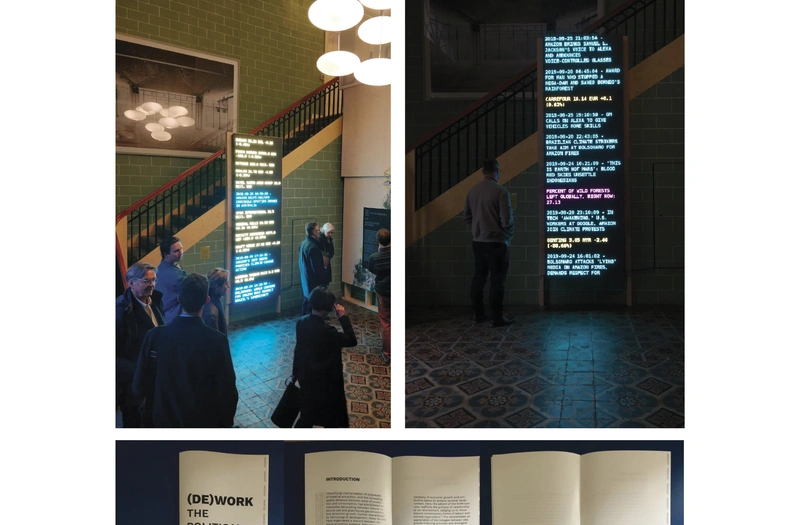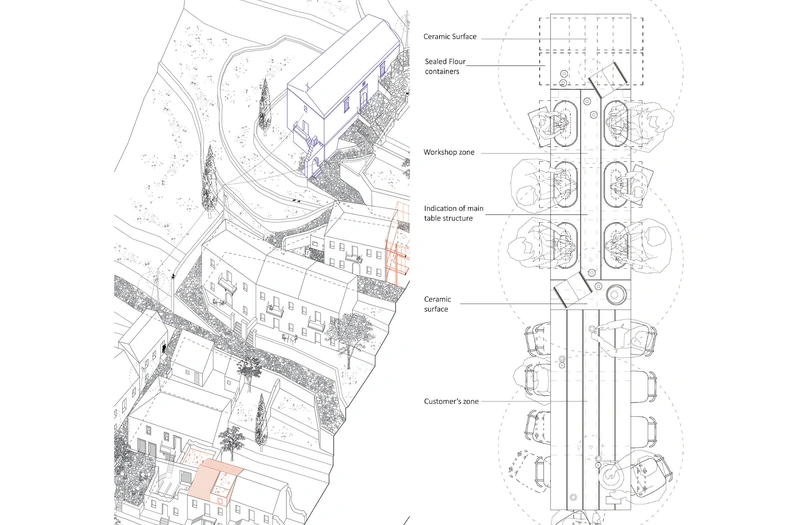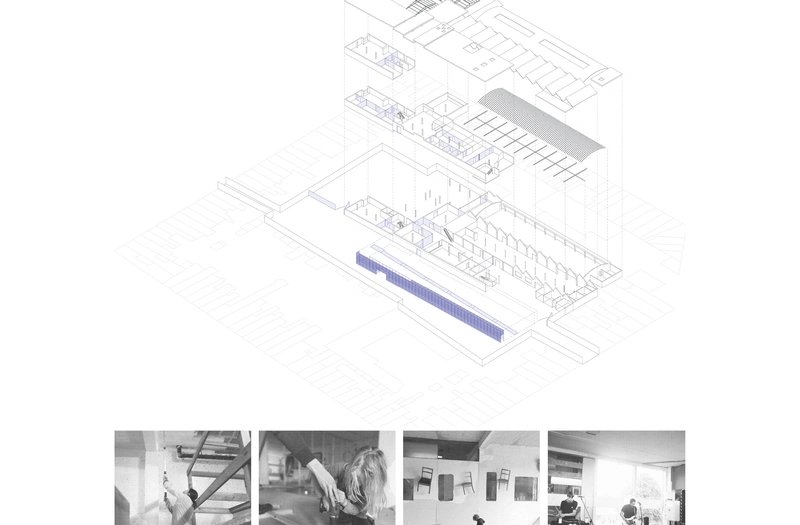In 2021 the Regional Development Fund of Western Greece conducted an architectural competition for the development and utilisation of the 45000m² former Ladopoulos Paper Mill industrial complex in Patras. The brief was seeking strategies to transform the inactive property and reintegrate it into the greater city, by introducing public open spaces, and new uses such as a new administrative centre, as well as further social infrastructure that could be proposed by the contestants. The competition brief is part of a greater vision for the sustainable urban development of Patras which involves the redesign of the city’s coastline along with the seaside old 500km2 industrial zone of derelict facilities that bear great potential.
The winning proposal concerns a comprehensive master plan that re-interprets the existing facilities and reconnects the neighbourhood (East) with the sea (West). The E-W direction, which coincides with the paper production line in the former factory, forms the backbone of a flexible design that prioritises preservation and celebrates the industrial character of the complex. This is further enhanced by selective demolitions resulting in new thresholds, breakout spaces and local street life, interlacing the building ensemble with the surrounding neighbourhood. Due to the size and the complexity of the development, we are proposing a structured, yet open-ended plan executed in phases rather than a unique predetermined solution. This enables the project to be evaluated and adjusted during implementation via public participation, thus making it a better fit for the city’s unpredictable and organically changing needs. A lively condenser of mobility and activities is proposed, such as: uses of central administration, cultural centre, kindergarten, fab-lab workshops, co-working spaces, public spaces that ensure a 24/7 use. The design of both renovated and added structures employs a wide range of future-proof strategies, such as double-programming, material reuse, design for change and disassembly, energy production and saving methods. Benefiting from its strategic position, opposite the new port, the complex can function as a foyer of the city and a hub of innovation and culture in direct relation to the centre and the educational institutions of Patras.
The project is a result of remote collaboration between Work Experiments and Alexandros Gerousis working across Athens, Copenhagen, Oslo and Tokyo during the COVID-19 pandemic.
The project proves that a technologically and socially innovative development can result from embracing the contextual complexities; working with the existing physical infrastructure and previously conducted urban studies. It showcases how derelict facilities can become beacons of sustainability and pave the way for future zero-carbon urban developments. The promotion of circular experimentation and production is expected to attract emerging economies that can also benefit from its strategic location next to the port of Patras. Furthermore, the open-ended design approach and the careful elaboration of the phasing strategy can result in a resilient development that can engage its target users from day one. As such, it can also be used as a tool for public participation, by foreseeing and allowing for an open decision-making process and testing alternative governance models such as temporary and collective space use.
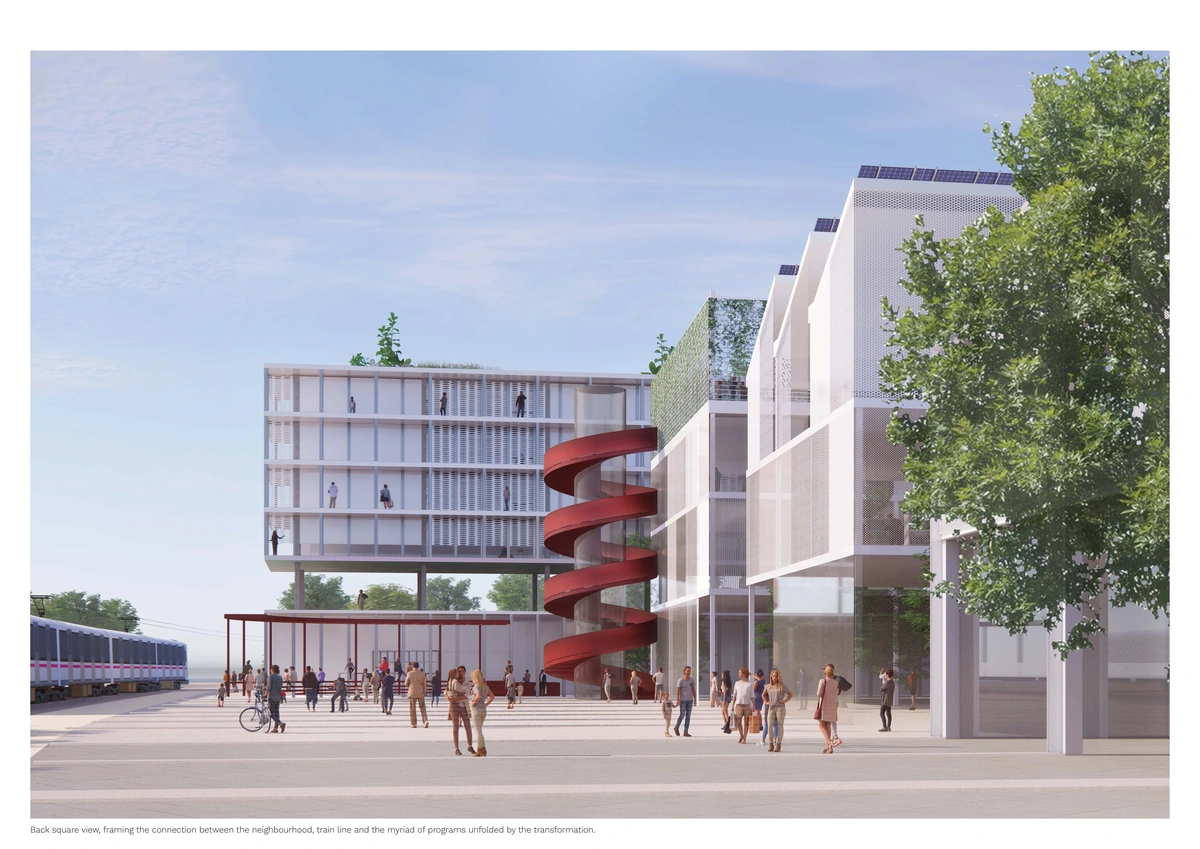
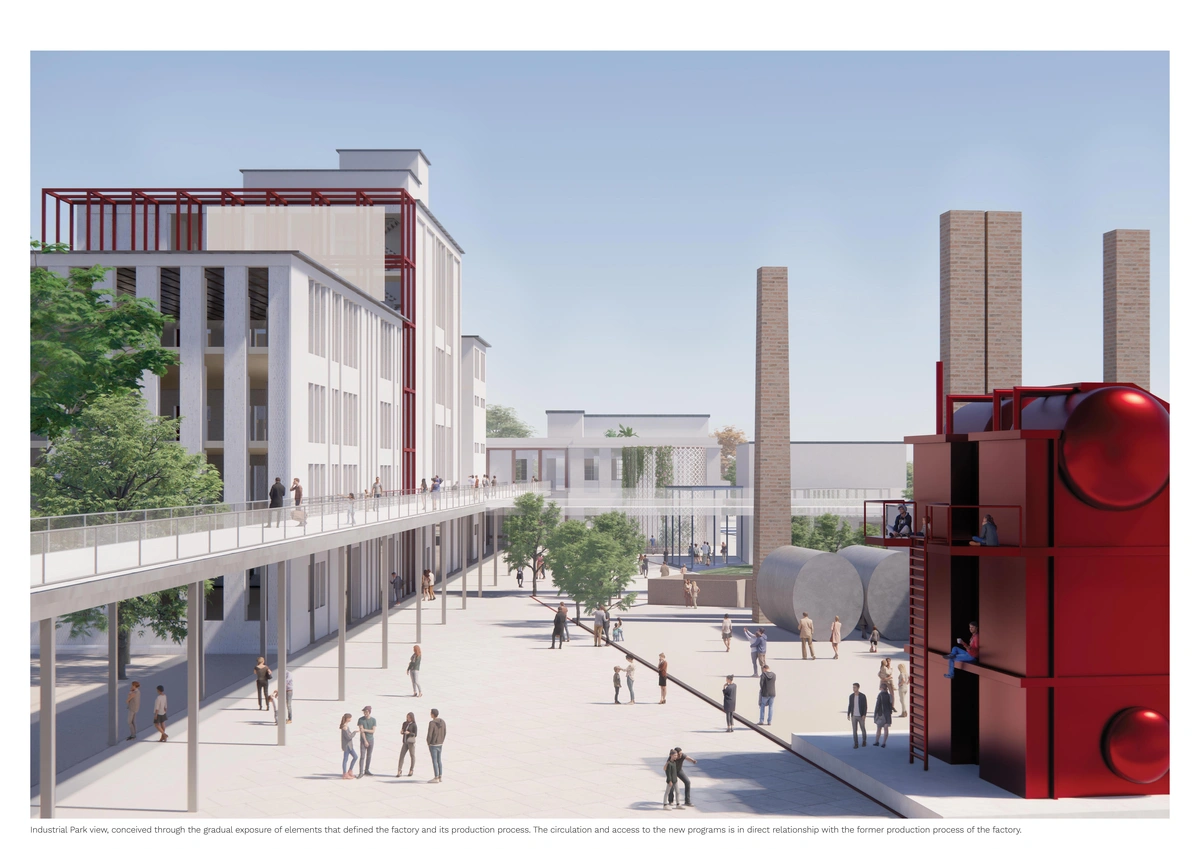
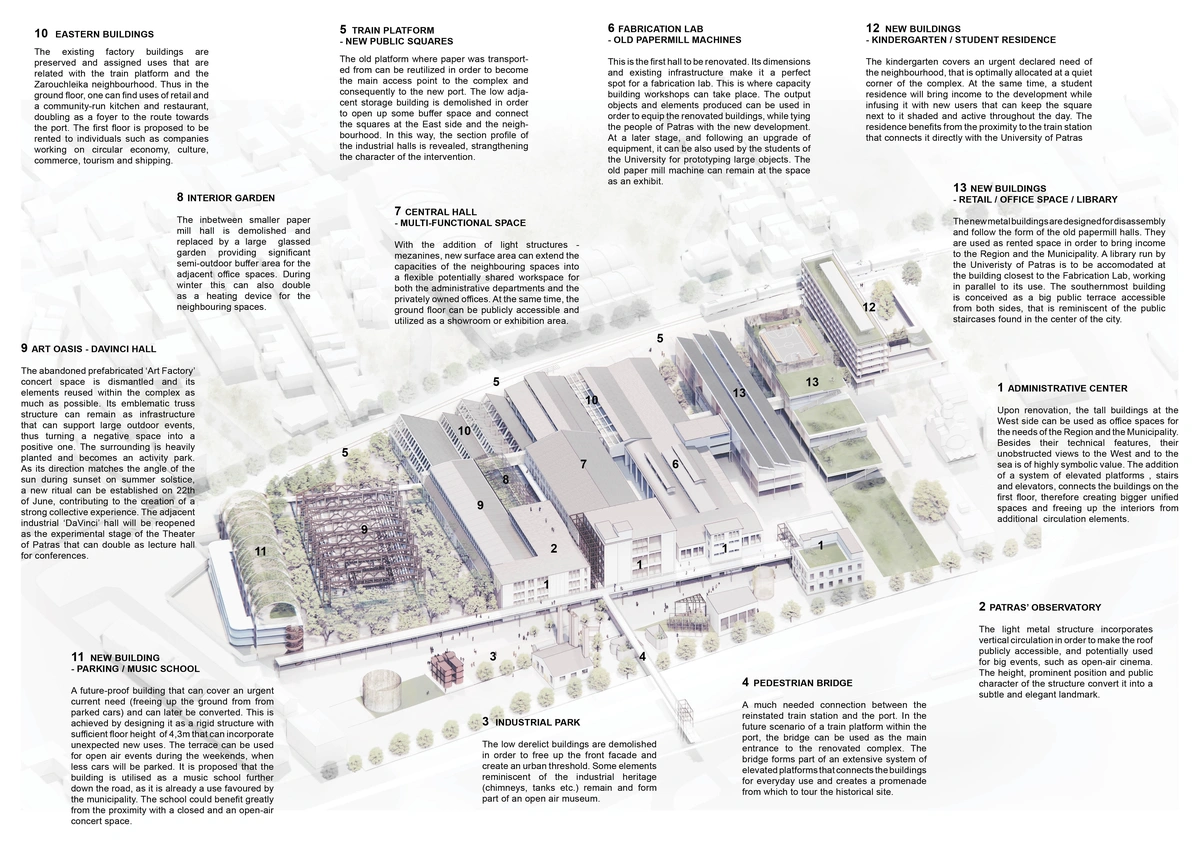
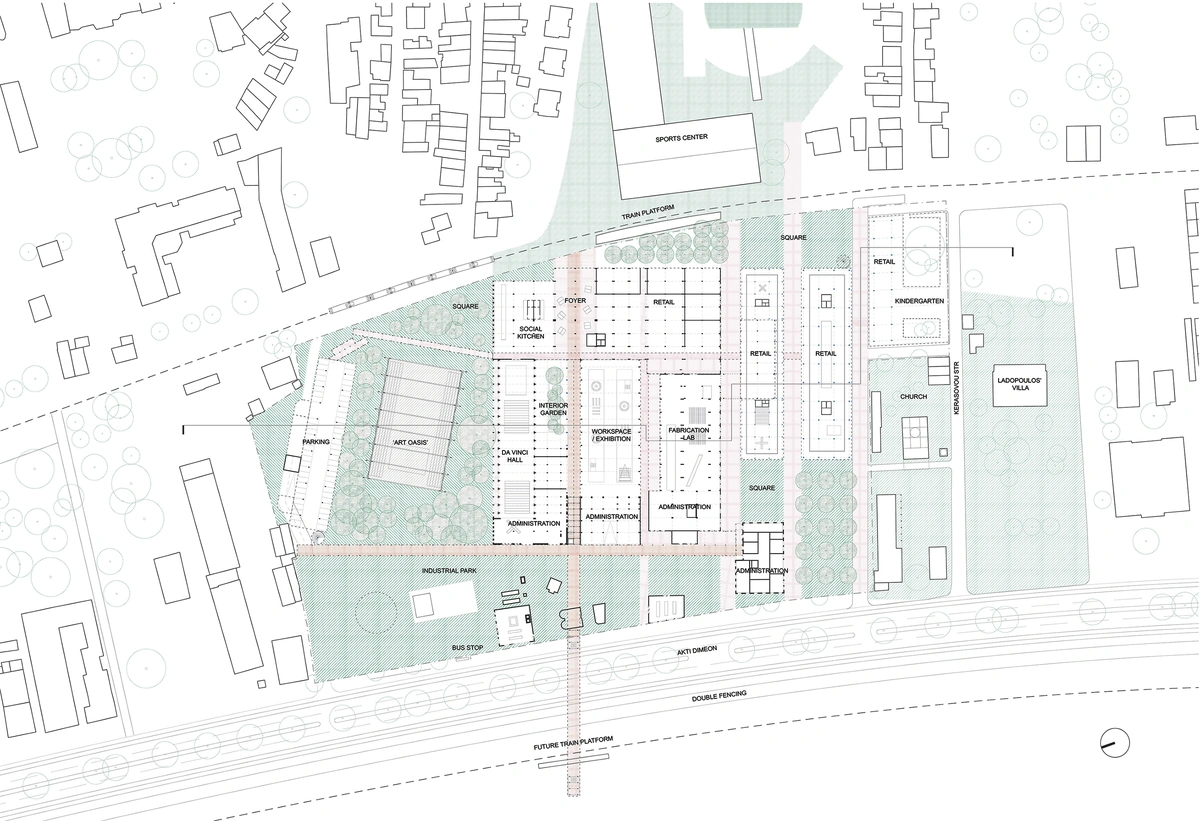
Overview layout plan for the proposal.

Sectional perspective through the complex showing its diverse arrangement of programs and possibilities.
Work Experiments is a research and design platform founded by Anastasia Gkoliomyti, Bruno Malusa, Dimitrios Giannelos, and Kostas Fetsis, operating across Athens, Copenhagen, Oslo and Tokyo. It was conceived as a shared effort and a post-COVID reaction to overcome physical distance and operate a digitally based collective, in order to pursue research within the urban and rural built environment. Through knowledge sharing from a diverse background, the team has a common goal of encouraging future proof, inclusive and sustainable communities through active participatory practices in critical planning and design processes.
